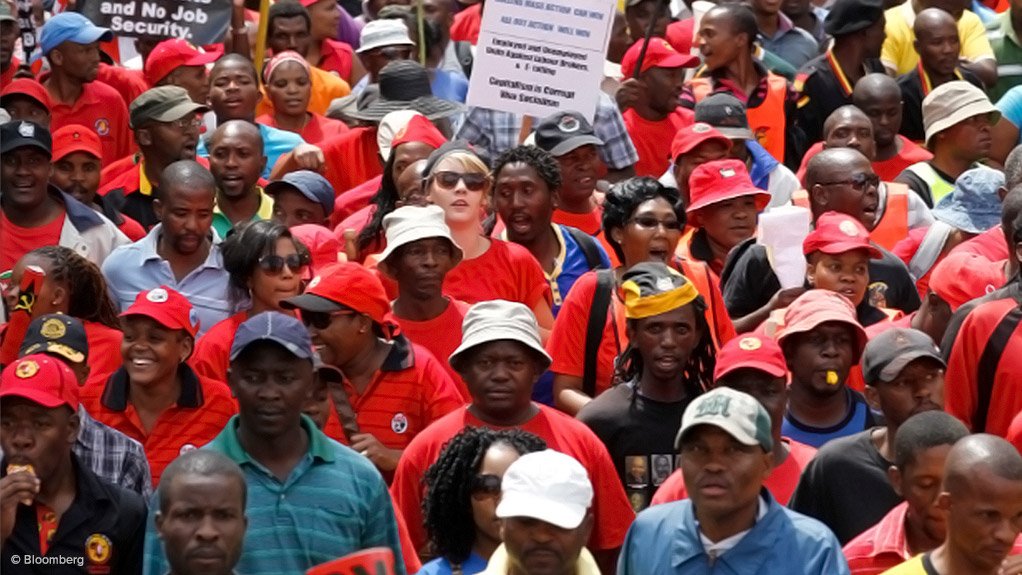JOHANNESBURG (miningweekly.com) – “Seismic shifts” in the country’s labour organisations look likely to make the forthcoming gold-sector wage negotiations – set to start on June 22 – more unpredictable than usual, with ructions in the trade union sector set to introduce a new dynamic, banking group BNP Paribas Cadiz Securities economists have cautioned.
“More than anything, new variables are thrown into the mix in terms of labour negotiations, causing players to respond in unpredictable ways. It will be harder to assess the likely progress of talks, settlement levels, the possibility of strikes and the length of any such strikes,” read the ‘South African politics: Wage-negotiation woes’ report, released on Friday.
BNP Paribas Cadiz Securities economists Nic Borain and Jeff Schultz further noted that, among the “surprises” likely to affect the impending wage talk season would be the probable establishment of an alternative federation to the African National Congress- (ANC-) aligned Congress of South African Trade Unions (Cosatu) by the National Union of Metalworkers of South Africa (Numsa).
This move would follow Tuesday’s decision by the High Court to deny the union an urgent hearing of its application to attend the Cosatu congress next month, having been expelled from the federation last year.
The economists believed there was a “strong” possibility that at least some of the eight Cosatu-affiliated unions that had backed Numsa’s return to the fold would leave Cosatu and join the Numsa-established alternative.
“Meanwhile, there has been something of a leadership revolution at the National Union of Mineworkers (NUM). At the national congress on June 5, the incumbent general secretary Frans Baleni lost the top job to David Sipunzi, the union’s Free State provincial secretary.
“With the departure of Baleni, a key ANC ally, the NUM’s leadership is now much closer to those of Numsa and its allies,” they argued.
The report further warned that the NUM’s new leadership might seek to prove its credentials by holding out for higher settlement levels than it would previously have done.
It was also possible that Cosatu and the ANC leadership might intervene to try to change the NUM leadership decision, which it could perceive as a threat, it held.
“This might leave management uncertain as to who it is dealing with in the negotiation process and whether the same people will be at the table from one day to the next,” said Borain and Schultz.
A possible side effect of the changing labour organisation dynamic would be an alliance between the NUM and the Association of Mineworkers and construction Union (AMCU).
“From a management perspective, the NUM and AMCU would reliably have been at odds during the process in the past…[but] the incoming NUM general secretary has already been talking about the ‘unity’ of the worker movement,” they added.
EMAIL THIS ARTICLE SAVE THIS ARTICLE
To subscribe email subscriptions@creamermedia.co.za or click here
To advertise email advertising@creamermedia.co.za or click here











